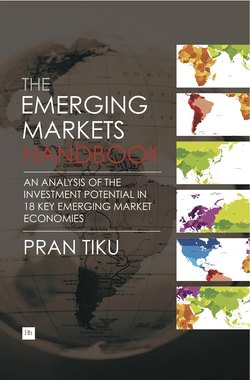Читать книгу The Emerging Markets Handbook - Pran Tiku - Страница 60
На сайте Литреса книга снята с продажи.
5. Political stability and governance
ОглавлениеPolitical stability (or lack thereof) has been a major factor in the unwillingness of many to invest their capital in emerging markets. When one looks back at some of the social unrest, corruption and conflict that used to plague many of these nations, one can hardly blame investors for their apprehension.
This outsider perception is certainly not lost on the majority of emerging market nations. Having come to realise that political balance sheets are just as important to their nation’s well-being as financial balance sheets, public leaders have placed a great deal of importance on achieving and maintaining political stability.
Another factor helping to promote political stability is the proliferation of 24/7 news media. There are armies of political scientists, analysts and hundreds of organisations watching the developments within these countries. The channels of information, in other words, are much more difficult for a government to muzzle than say the local press, which in the past would often kowtow to political heavyweights.
It should be noted that political stability is not equated to democracy because democracy is not always a good indicator of economic potential. China is clearly an example of a society that is not democratic, while India is. Yet China has consistently achieved higher growth rates. The obvious difference is that China has a controlled society with market access and has been able to channel its resources effectively to increase jobs, exports and industrialisation. India, a vibrant democracy, still has a partially closed economy with limited access and is focused on internal consumption.
There are many examples of dictatorships that have done reasonably well economically and, of course, many democracies that have failed miserably. Indonesia, Philippines, Turkey, Thailand and Argentina all had dictatorships during their recent history and delivered above average economic benefits for their citizens, though they certainly curtailed personal freedoms.
The purpose here is not to pass moral judgment on which political system is ideal, but rather to realise that growth can happen in spite of almost any political system. That said, for trade and business relationships to flourish a minimum set of standards with regard to property rights, legal rights and transparency would be required.
